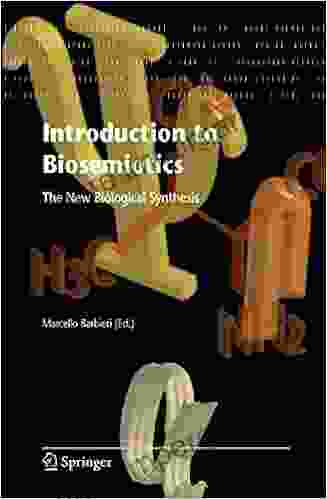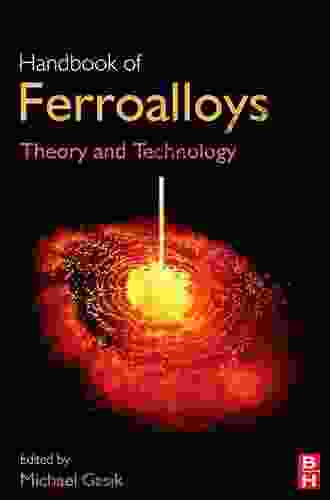Epistemology In South Asian Philosophy Of Religion: Unraveling the Quest for Knowledge

In the vast and ever-evolving tapestry of human thought, the pursuit of knowledge has been a constant thread, weaving its way through civilizations and epochs. Epistemology, the study of knowledge, its nature, and its limits, has captivated philosophers for centuries, and South Asia has been a fertile ground for its exploration.
South Asian philosophy of religion, with its rich tradition of spiritual contemplation and intellectual inquiry, has given rise to a diverse range of epistemological theories and perspectives. From the ancient skepticism of the Charvakas to the intricate theories of inference in Nyaya, and the Buddhist emphasis on experience and insight, South Asian philosophers have grappled with the fundamental questions of how we know what we know and the nature of truth and reality.
5 out of 5
| Language | : | English |
| File size | : | 6338 KB |
| Screen Reader | : | Supported |
| Print length | : | 328 pages |
The Charvakas: Radical Skepticism
The Charvakas, an ancient materialist school of thought, held a radical skeptical view of knowledge. They argued that all knowledge is ultimately uncertain, as our senses are unreliable and our minds are prone to deception. For them, the pursuit of knowledge was a futile endeavor, and the only true goal was to seek pleasure and avoid pain.
Nyaya: Inference and Logic
In contrast to the skepticism of the Charvakas, the Nyaya school of philosophy developed a sophisticated system of logic and epistemology. They argued that knowledge can be acquired through valid inference, a process of reasoning that derives new knowledge from existing knowledge. Nyaya philosophers developed elaborate rules for constructing syllogisms and determining the validity of arguments.
Buddhism: Experience and Insight
Buddhism, with its emphasis on personal experience and meditative practice, contributed significantly to South Asian epistemology. Buddhist philosophers argued that true knowledge arises not from abstract reasoning but from direct experience and insight into the nature of reality. They developed various meditation techniques designed to cultivate mindfulness, concentration, and wisdom.
Hindu Epistemology: Multiple Paths to Knowledge
Hinduism, with its diverse and complex philosophical traditions, embraces a wide range of epistemological views. Some Hindu philosophers, such as the Advaita Vedantins, argued for the ultimate unity of reality and the unreality of the phenomenal world. They held that true knowledge is only possible through mystical experience and the realization of one's identity with the Absolute.
Other Hindu schools, such as the Dvaita Vedantins, emphasized the reality of the phenomenal world and the importance of perception and inference as sources of knowledge. They argued that God is a separate and personal entity and that true knowledge can be acquired through devotion to God.
Jain Epistemology: Anekantavada
Jainism, an ancient Indian religion, developed a unique epistemological perspective known as Anekantavada. This view holds that reality is multifaceted and can be described from multiple perspectives. Jain philosophers argued that all knowledge is limited and incomplete, and that true understanding requires the consideration of multiple viewpoints and perspectives.
Sikh Epistemology: Revelation and Experience
Sikhism, a monotheistic religion founded in the 15th century, blends elements of both Hindu and Islamic epistemology. Sikh philosophers emphasized the importance of revelation as a source of knowledge. They believed that the teachings of the Sikh gurus are divine and provide direct access to the truth. However, they also recognized the value of personal experience and the need to apply reason and logic to spiritual matters.
Contemporary South Asian Epistemology
South Asian epistemology continues to evolve and adapt in contemporary times. Modern South Asian philosophers have engaged with Western philosophical traditions and incorporated new insights into their own epistemological frameworks. They have explored issues such as the nature of scientific knowledge, the relationship between knowledge and morality, and the role of technology in shaping our understanding of the world.
Epistemology in South Asian philosophy of religion is a vast and multifaceted field of inquiry that has enriched our understanding of knowledge, truth, and reality. From the radical skepticism of the Charvakas to the sophisticated logic of the Nyaya school, and the experiential insights of Buddhism, South Asian philosophers have provided a wealth of perspectives on how we know what we know.
By engaging with these ancient and contemporary theories, we can deepen our own understanding of the nature of knowledge, its limits, and its profound implications for our lives and the world around us.
5 out of 5
| Language | : | English |
| File size | : | 6338 KB |
| Screen Reader | : | Supported |
| Print length | : | 328 pages |
Do you want to contribute by writing guest posts on this blog?
Please contact us and send us a resume of previous articles that you have written.
 Book
Book Novel
Novel Page
Page Chapter
Chapter Text
Text Story
Story Genre
Genre Reader
Reader Library
Library Paperback
Paperback E-book
E-book Magazine
Magazine Newspaper
Newspaper Paragraph
Paragraph Sentence
Sentence Bookmark
Bookmark Shelf
Shelf Glossary
Glossary Bibliography
Bibliography Foreword
Foreword Preface
Preface Synopsis
Synopsis Annotation
Annotation Footnote
Footnote Manuscript
Manuscript Scroll
Scroll Codex
Codex Tome
Tome Bestseller
Bestseller Classics
Classics Library card
Library card Narrative
Narrative Biography
Biography Autobiography
Autobiography Memoir
Memoir Reference
Reference Encyclopedia
Encyclopedia Lois Jones
Lois Jones Melody Moezzi
Melody Moezzi Lucien Gregoire
Lucien Gregoire Lora S Irish
Lora S Irish Linda G Cooper
Linda G Cooper Lisa M Sullivan
Lisa M Sullivan Lisa Chamberlain
Lisa Chamberlain Lynn Windsor
Lynn Windsor Marc Nally
Marc Nally Llewella Chapman
Llewella Chapman Lisa Niemi
Lisa Niemi Lisa Daily
Lisa Daily Marc Bekoff
Marc Bekoff Lisbeth Haas
Lisbeth Haas Marc Eliot
Marc Eliot Mandy Armitage
Mandy Armitage Robert A Kainer
Robert A Kainer Lloyd P Gerson
Lloyd P Gerson Lisa Thomas
Lisa Thomas Marcela Ternavasio
Marcela Ternavasio
Light bulbAdvertise smarter! Our strategic ad space ensures maximum exposure. Reserve your spot today!

 Danny SimmonsThe Australia–European Union Free Trade Agreement: The European Yearbook of...
Danny SimmonsThe Australia–European Union Free Trade Agreement: The European Yearbook of... Leslie CarterFollow ·17k
Leslie CarterFollow ·17k Edmund HayesFollow ·19k
Edmund HayesFollow ·19k Griffin MitchellFollow ·5.9k
Griffin MitchellFollow ·5.9k Richard AdamsFollow ·16.2k
Richard AdamsFollow ·16.2k Frank MitchellFollow ·15.2k
Frank MitchellFollow ·15.2k Dashawn HayesFollow ·2.5k
Dashawn HayesFollow ·2.5k Herbert CoxFollow ·17.8k
Herbert CoxFollow ·17.8k Johnny TurnerFollow ·16.9k
Johnny TurnerFollow ·16.9k

 J.D. Salinger
J.D. SalingerThe Montefeltro Conspiracy Renaissance Mystery Decoded
In the heart of the Italian Renaissance, a...

 Ryūnosuke Akutagawa
Ryūnosuke AkutagawaElan Vital Magazine: A Literary Sanctuary for the Mind...
In this fast-paced digital age, where...

 Derek Bell
Derek BellCode Biology: Unveiling the New Science of Life
Every living organism, from...

 Rick Nelson
Rick NelsonUnleash the Darkness: Dive into the World of Villain Arts...
Prepare to be...

 Tony Carter
Tony CarterEmbark on a Scientific Odyssey: Unveil the Secrets of...
In an era where environmental concerns...
5 out of 5
| Language | : | English |
| File size | : | 6338 KB |
| Screen Reader | : | Supported |
| Print length | : | 328 pages |












